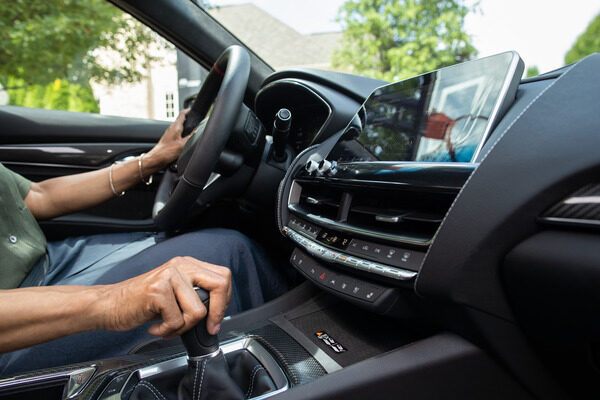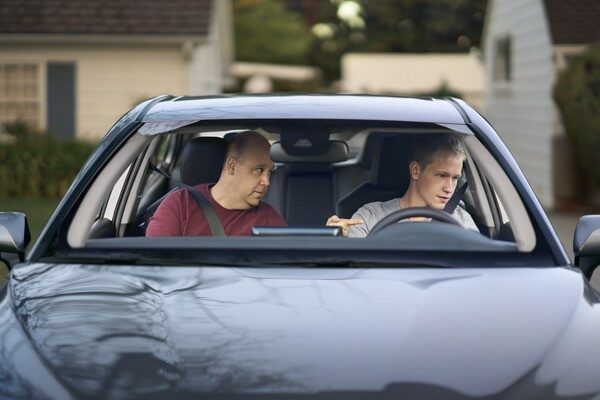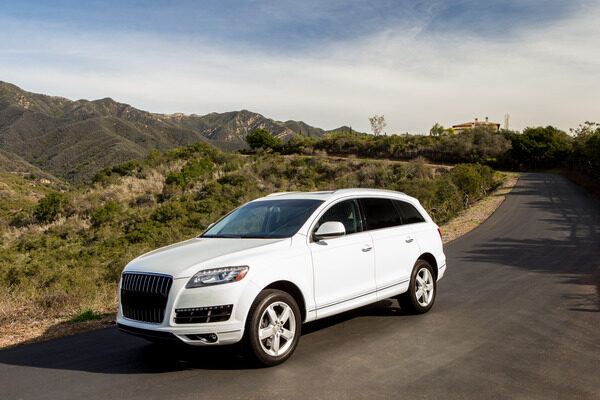
Chilly days and nights prompt rodents, especially mice, to seek warmth – often under the hoods of cars. Mice in your car are more than just a nuisance, they can be dangerous. Here are some tips on how to help keep mice and other pests out of your car.¹
How do mice get in cars
Like any intruder, rodents can enter your car through open doors and windows, however their small stature gives them many more avenues in. The air inlet of your engine compartment leads directly to the airbox, providing mice and other rodents an easy route to one of their favorite nesting spots. Mice can also access the interior of your car from the engine compartment, squeezing in through vents or small openings designed for wires, cables, pedals, or your steering column.²
Keep mice out of the car’s engine
Their choice of shelter is not just a nuisance. When mice are under the hood they might build nests or chew belts or wires. The result can cause serious engine malfunctions and even car fires. A nest located in a fan or intake manifold can ignite. Wires that are frayed from chewing can also cause fires.
Don’t dismiss this warning as something that only occurs in cars that aren’t regularly driven. Just as people seek the handiest shelter during storms, so do these animals. The National Fire Protection Association warns almost two-thirds of vehicle fires are caused by faulty electrical or mechanical systems, often brought on by animal damage. Animals aren’t the sole cause of these fires but auto technicians note that animals in engines are not unusual.
4 tips on how to get mice out of your car
1. Park under shelter
If you have a garage or other vehicle-appropriate shelter, use it. Although squirrels, mice and other small animals flourish in rural areas, they are common everywhere. Save time and money by taking the extra time to park your car in a sheltered area.
2. Honk to scare away mice in the car
Honk your horn before you start the engine. If your key fob has that function, you’ll be able to do that from a distance. Making loud noises will help get rid of mice in the car, along with cats and other animals, by scaring them away.
Of course, it’s important not to go overboard, lest you upset your neighbors. A few honks will do.
Wait a few extra seconds after you sound the horn before you start the car. Small animals wedge themselves into tiny spaces within the engine and may need some extra time to extract themselves and escape.
3. Use mouse deterrents for cars
There are multiple different physical and chemical mouse deterrents you can use to try to keep them at bay. Choose from the following:
Electronic repellent: A cordless device can be placed within your vehicle and emits a decibel tone that hurt mice and other pests, but are inaudible to humans.
Scent repellants (natural mouse deterrents): Try placing either cedar wood, peppermint oil or cayenne pepper around your car. Mice naturally avoid these deterrents and they are a more humane alternative than using poisons. Mothballs can be hung under the front of the hood as a repellant; however be sure to not place near the windshield washer area (where fluid is expelled) or the mothball smell will permeate the interior of the car.
Mouse traps: Mouse traps are a relatively quick and clean way to keep mice from invading your car. Place the traps on the tops of your tires as this is most likely their point of entry into your vehicle.
4. Check your car and surroundings
Regularly look under the hood of your vehicle. Mouse nests can easily be spotted and removed. Also, examine the wiring and mechanical systems for signs of chewing or fraying.
Scan the engine and driveway for leaks. Rodents like the taste of oil, gasoline and other automotive fluids, such leaks attract them. Leaking fluid can ignite leaves, trash and other debris in the roadway. In addition, leaks are dangerous to children, pets and the environment.
Listen for rattles. Flame-retardant materials are generally between the exhaust systems and floorboards of most vehicles. If you hear a rattle, a rodent or other animal may have loosened the materials.
If you see damaged wiring or suspect leaks, take the car for service. In fact, it’s a good idea to have mechanics check your car engine at least annually for such damage.
Don’t chance a fire. If you suspect or see a fire in your car as you drive, stop the car immediately, preferably on pavement rather than grass or other flammable materials. Turn off the ignition and abandon the vehicle. Then call for help.
If a mouse does chew through wires or belts, it’s crucial to get your car repaired as soon as possible. Use these tips to find the right mechanic.
Cleaning up after mice in the car
The most important thing to remember about cleaning after you’ve gotten rid of mice in your car is to not vacuum right away. Mice droppings and urine can be infected by the Hantavirus, which humans can contract when breathed in. First, move your vehicle out of the garage and into an open area and air it out.
Next, while wearing rubber gloves, mix household bleach with water and spray the affected areas until wet. Let it sit for five minutes and wipe with a paper towel. Then sponge the areas with bleach solution. Throw out your materials in a plastic bag, and then wash your hands with soap and water after removing the rubber gloves.
[1] https://www.victorpest.com/articles/how-to-keep-mice-out-of-cars
[2] https://www.erieinsurance.com/blog/mouse-in-my-car, Accessed October 2021.
Disclaimer:
The information included is designed for informational purposes only. It is not legal, tax, financial or any other sort of advice, nor is it a substitute for such advice. The information may not apply to your specific situation. We have tried to make sure the information is accurate, but it could be outdated or even inaccurate in parts. It is the reader’s responsibility to comply with any applicable local, state, or federal regulations. Nationwide Mutual Insurance Company, its affiliates and their employees make no warranties about the information nor guarantee of results, and they assume no liability in connection with the information provided. Nationwide, Nationwide is on your side, and the Nationwide N and Eagle are services marks of Nationwide Mutual Insurance Company. © 2021 Nationwide.



